Nakayama is in between Narita And Haneda International Airport
<クッキーについての同意並び欧州居住者向けプライバシーポリシー>
中山・下総・散歩道
Eichosan Josenin Myokoji Temple by Furukawa Water Park
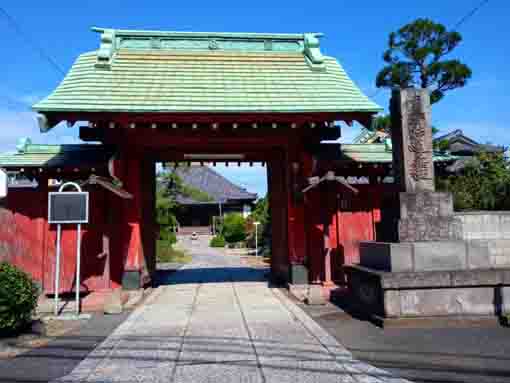
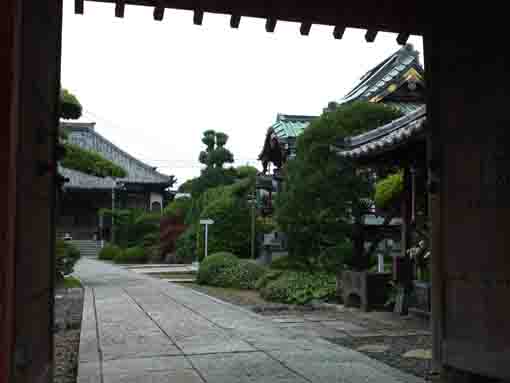
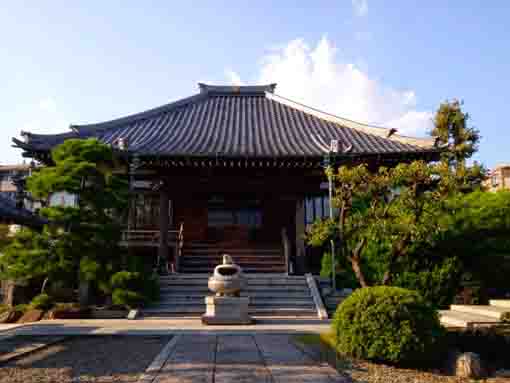
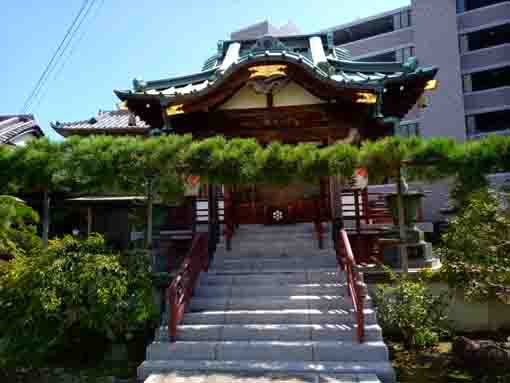
Eichosan Josenin Myokoji iis a temple that is standing by Furukawa Water Park in Edogawaku has been called 'Akamon Dera (the temple having the red gate)' among people with their warmth. There is a bridge with bridge railings named Nomabunbashi bridge across Furukawa River near Myokoji, so the red gate and the red railings paint the seasonal views of Furukawa Water Park dramatically. Myokoji has a hall dedicates a deity called Shichimen Daimyojin in it. Myokoji Temple is a wonderful temple with green pine trees.
Eichosan Josenin Myokoji in Edogawaku Tokyo
Eichosan Josenin Myokoji
Myokoji belongs to Nichiren Sect in Buddhism. It was named Eichosan Joseini Jokoji, and followers living around it calls 'Akamondera' means 'the temple with a red gate'. The Venerable Nichino (passed in 1585) built it. According to Shinpen Musashi Fudokiko (a geographic guidebook describing Musashi Province in Edo period), it has a principal image for praying for Jukkai and a statue of the Founder Nichiren. Now the statue is the principal image of this temple. Moreover, there is a Shichimendo Hall, a statue of Shichimen Daimyojin having appeared from the sea has been dedicated there. And statue of Kishimojin and a guardian deity of smallpox are in, too.Myokoji preserves mandalas drawn by Nikkan, Nichion and Nichiju as its treasures
□the wooden staute of the Founder Nichiren sitting
It was registered as a tangible cultural asset of a sculpture by Edogawaku in Feburary 1982
It was curved in 1594, but there are no records who curved it. It is 21.6 centimeters tall. It has a graceful figure. The sculpture is a parquetry made of Japanese cypresses and pupils of its eyes are made of crystal, it wore gold and purple clothing on it and it has a sutra and a mace in its hands.
December 2002
Edogakaku Board of Education
栄長山常泉院妙光寺赤門前案内板より
Shichimenden (Shichime Daimyojin)
Passing through the wooden red gate, there is a small hat on the stone steps over a pine branch like an arch. It dedicates Shichimen Daimyojin from the sea. Shichimen Daimyojin is a gardian deity dedicated near the head quoter of Nichiren Sect named Minobusan Kuonji. According a guide book published in Meiji Era 'Nichirenshu Honzan Meishozue (a guidebook of the head quoter of Nichiren Sect)', it had been believed for a long time and 'Minobusan Kongenki (a history book of Minobusan)' edited by the venerable Nichiryo told that 'believing to Shichime Daimyoji appearing' could be one of the ten sections that he had regarded as important. And the guidebook tells an old story. 'During Gosanjo Emperor Era (1034~1073), a noble man in Kyoto named Moroshuke Kyogoku prayed for a god at Itsukushima Benzaiten in Hiroshima to get a daughter and his wish came true, he gained a beautiful daughter, and she later got married with a man who was one of the reletives of the emperor. However, the book said there had been no specific information of Shichimen Daimyoji.Moreover, a website 'Yamanashi no Rekishi wo tabisuru site (a site for a trip in history of Yamanashi Prefecture)' tells a story that Shichimen Daimyojin is dedicatid as a guardian deity of Minobusan and people believing in Hokekyo.
引用、抜粋並びに参考
栄長山常泉院妙光寺赤門前案内板
新編武蔵風土記稿
日蓮宗本山名所図会
山梨の歴史を旅するサイト(公益社団法人やまなし観光推進機構)
Landmarks near Chokosan Josenin Myokoji Temple
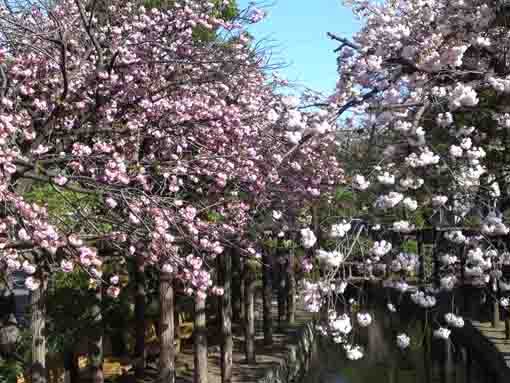
Furukawa Water Park
It is the first water park in Japan and a famous spot for viewing Sakura and hydrangeas.。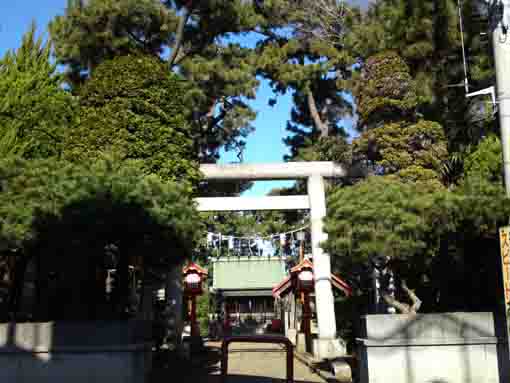
Ninoe Jinja Shrine
This shrine is very beautiful with many tall pine trees and a giant zelkova tree in it.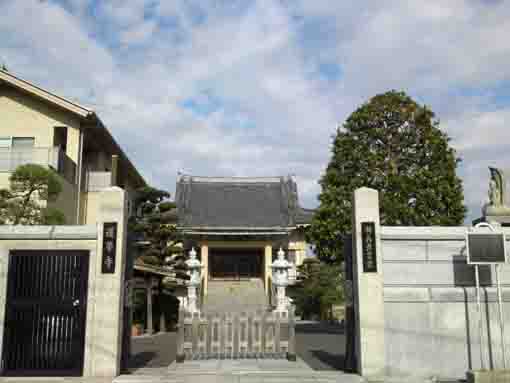
Kaishosan Rengeji Temple
The principle image is the statue of Sho Kanzeon Bosatsu carved by Gyoki.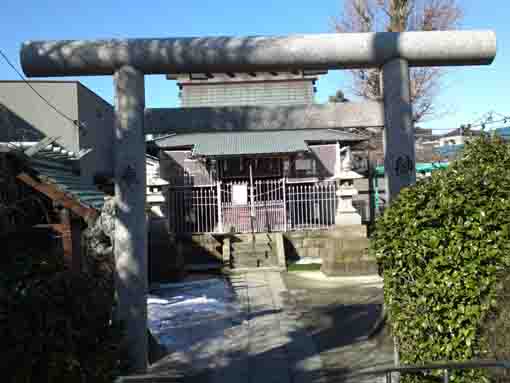
Kumano Jinja Shrine
This shrine stands where famous and popular tasty water flows in the river.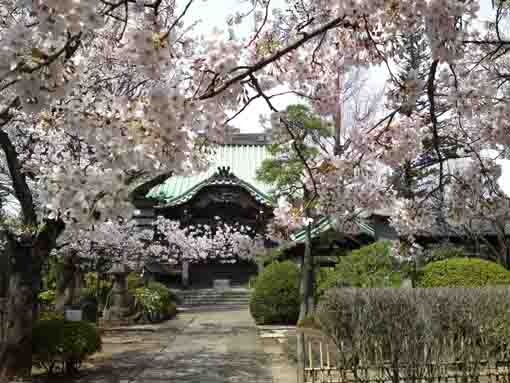
Honkakusan Myoshoji Temple
An old temple has a beautiful garden.The Location and Access to Choeisan Josenin Myokoji Temple
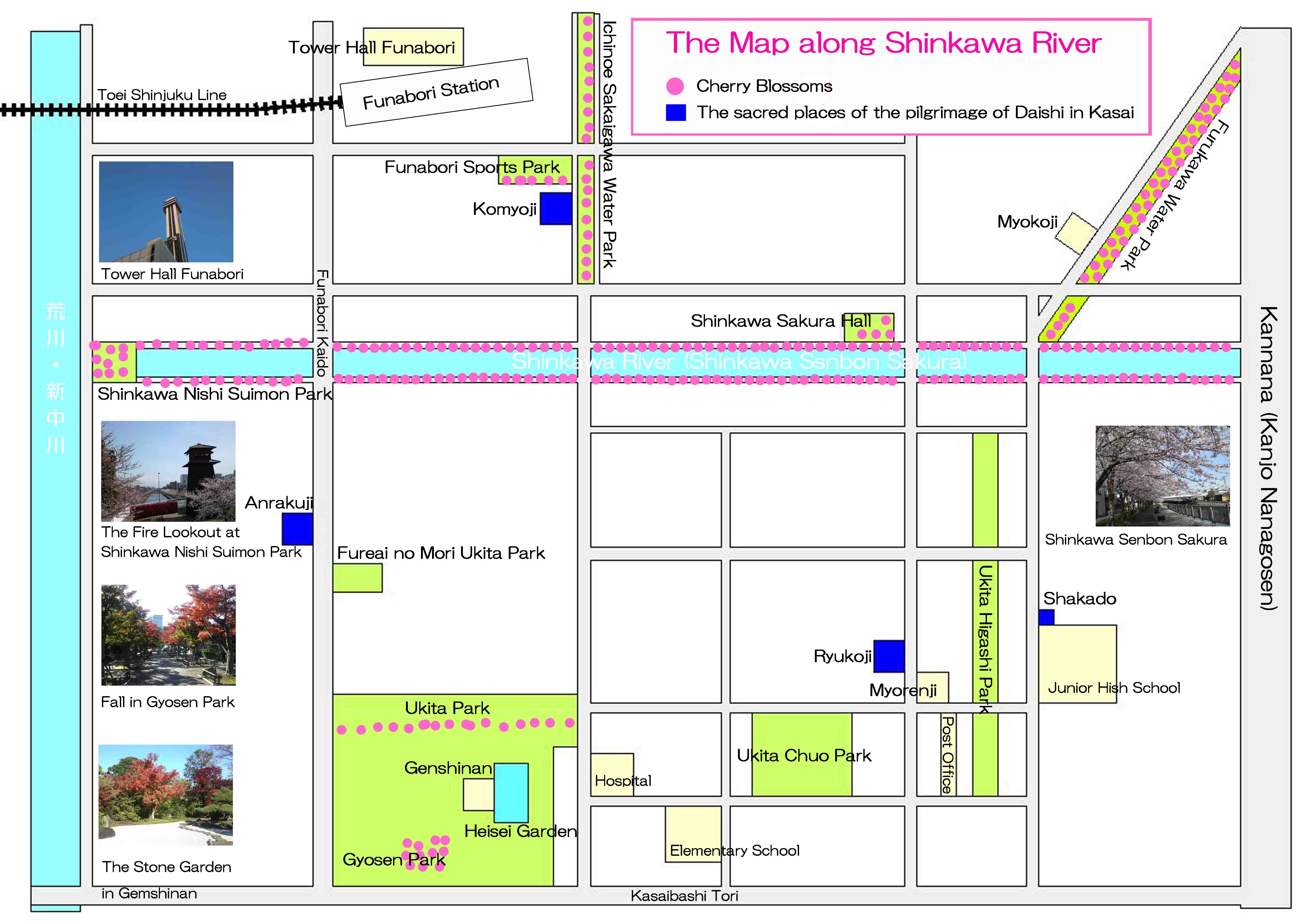
The map of the noted spots along Shinkawa River
The Map of the noted spots along Shinkawa RiverHonkakusan Jojuin Myoshoji Temple
- Honkakusan Jojuin Myoshoji Temple has great accessibilities from both Narita and Haneda International Airport.
- From Narita International Airport, take Sobu Express Line bound to Tokyo or Yokosuka and get off at Funabashi Sta, then transfer the line to Sobu line bound to Nakano or Mitaka ang get off at Motoyawata Sta. Or take Keisei-line bound to Ueno and get off Keisei Yawata Sta. Both from Motoyawata Sta and Keisei Yawata Sta, transfer the line to Toei Shinjuku line and get off at Ichinoe Sta.
- From Haneda International Airport, take Keikyu-line bound to Narita, and get off Shinagawa Sta and transfer the line to Sobu Express line bound to Narita International Airport or Chiba, and transfer the line at Ichikawa Sta to Sob line bound to Nishi Funabashi, Tsudanuma or Chiba and get off at Motoyawata Sta. Or take Keikyu-line bound to Narita, and get off Keisei Yawata Sta. Both from Motoyawata Sta and Keisei Yawata Sta, transfer the line to Toei Shinjuku line and get off at Ichinoe Sta.
- From Iwamotocho Station at Akihabara, take Toei Shijuku line bound to Motoyawata and get off Ichinoe or Funabori Sta.
- Take 17 minute walk from both Ichinoe and Funabori Sta.
- 6-16-5 Edogawa, Edogawaku, Tokyo
The Noted Spots around Funabori, Ichinoe and Kasai
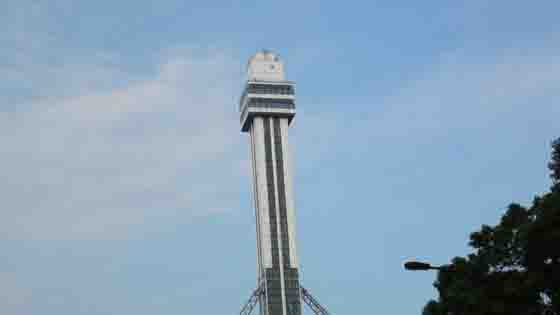
The Observatory on Tower Hall Funabori
Visitors could enjoy seeing some special views of Tokyo.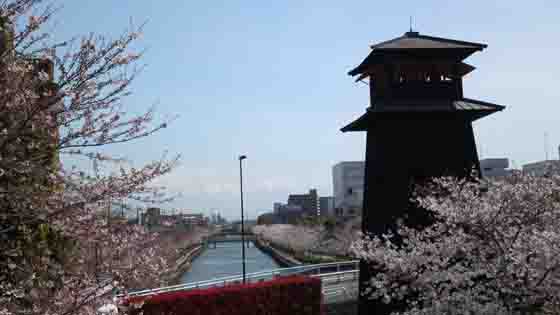
A Walk Along Shinkawa River
There are some Edo style, some wooden buildings and thousands of cherry trees along the river.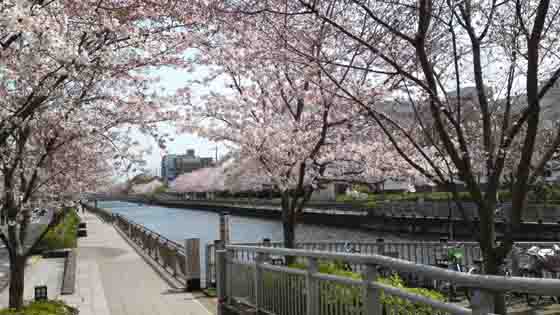
Thousands of Cherry Trees along Shinkawa River
In spring, thousands of sakura along it beautifully bloom.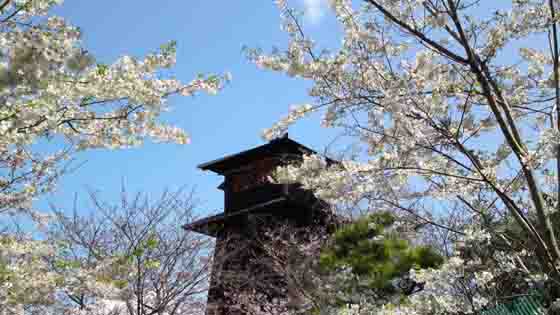
Shinkawa Nishi Suimon Hiroba Plaza
There are a Edo style fire lookout and an old lock gate in the plaza.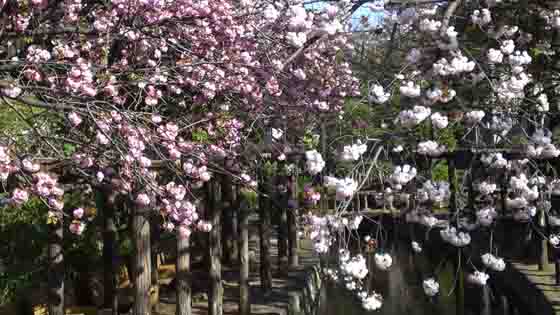
Furukawa Water Park
It is the first water park in Japan and a famous spot for viewing Sakura and hydrangeas.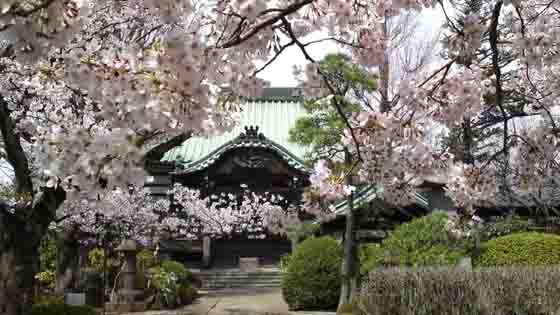
Honkakusan Myoshoji Temple
There are some seasonal flowers blooming in every season, sakura especially blooms beautifully.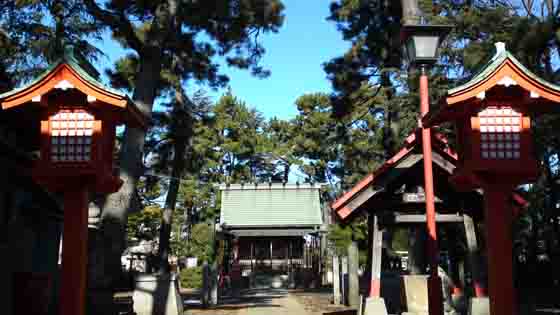
Ninoe Jinja Shrine
There are several tall pine trees and a 500 years old giant zelkova tree in the shrine.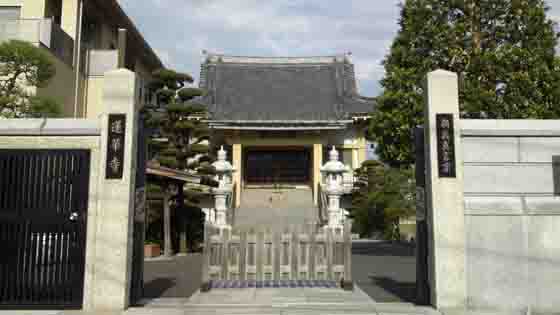
Kaishosan Rengeji Temple
The principle image is the statue of Sho Kanzeon Bosatsu carved by Gyoki.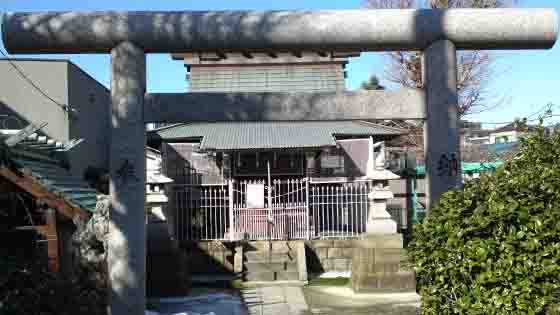
Kumano Jinja Shrine
There is a stone tablet scribing a haiku poem written by Basho Matsuo.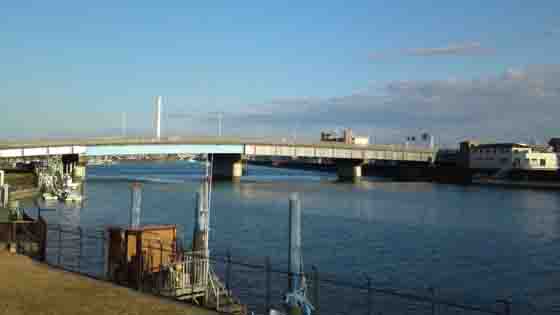
The Remain of the Ferry at Imai
The ferryport at Imai is appeared on an essey written by Socho, a renga poet in Muromachi period.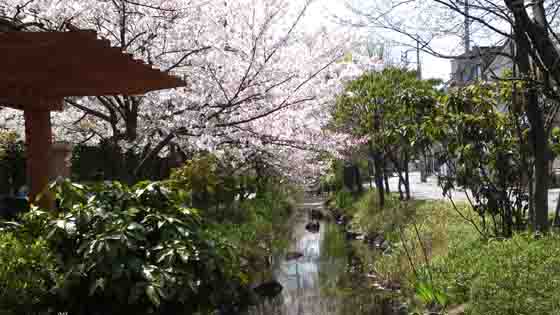
Ichinoe Sakaigawa Water Park
The park has many sakura and seasonal flowers, visitors could enjoy all seasons.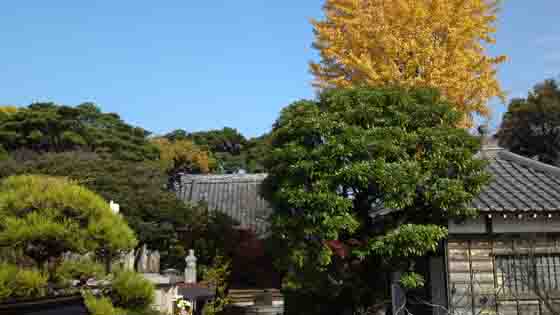
Iousan Myouonji Temple
It has the legend 'the One-eyed Crucial Carps' telling the miracle power to cure eye diseases.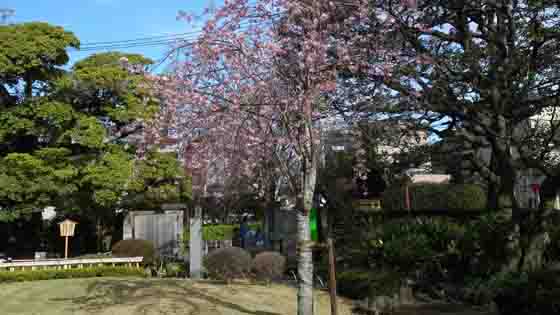
Ichinoe Makkotei Residence Park
In spring, weeping cherry trees bloom, in fall, colored leaves decorate the garden.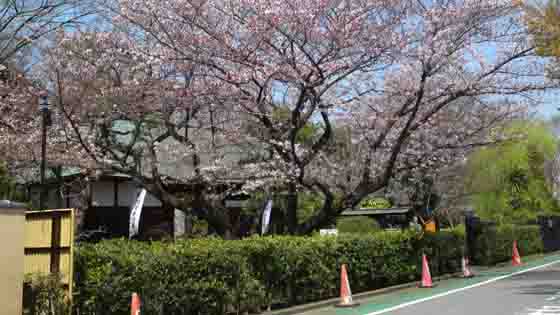
The Residence of Ichinoe Nanushi Yashiki
The traditional Japanese style residence with a thatched roof.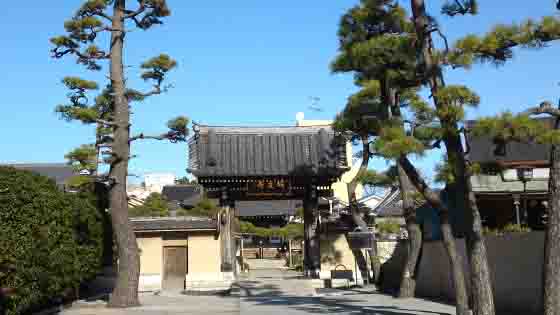
Honkosan Joryuji Temple
It is an important temple to know the history of Ichinoe area.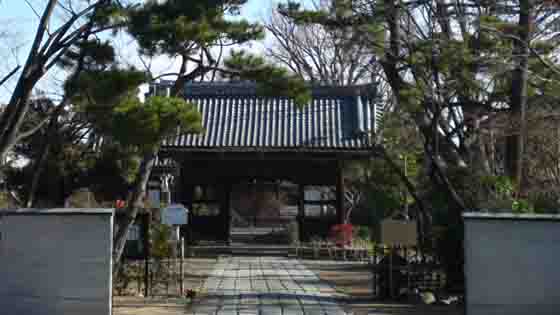
Chogyosan Daiunji Temple
It has tombs of Kabuki Yakusha and it is called Yakushadera.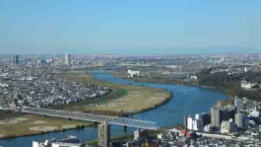
A Walk Along Edogawa River
The areas along the river have many noted spots that people could enjoy history and culture.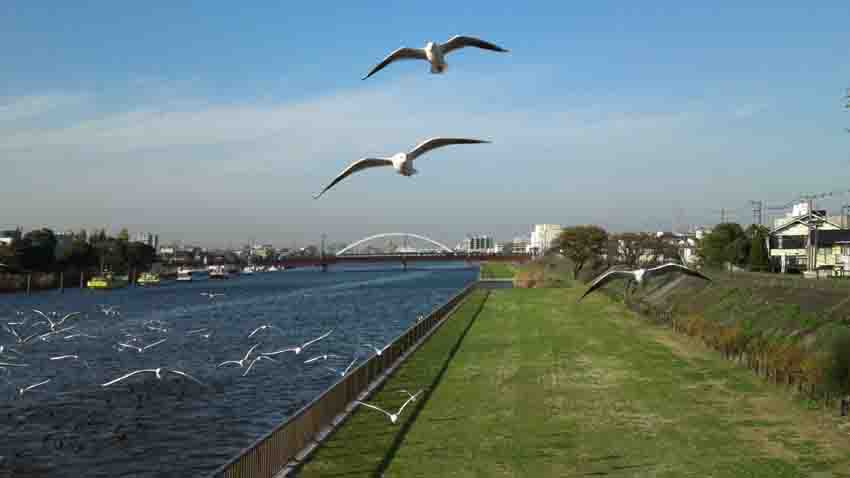
A Walk Along Shinnakagawa River
There are some historical and cultural spots along the river.- 広告 Advertisement -
